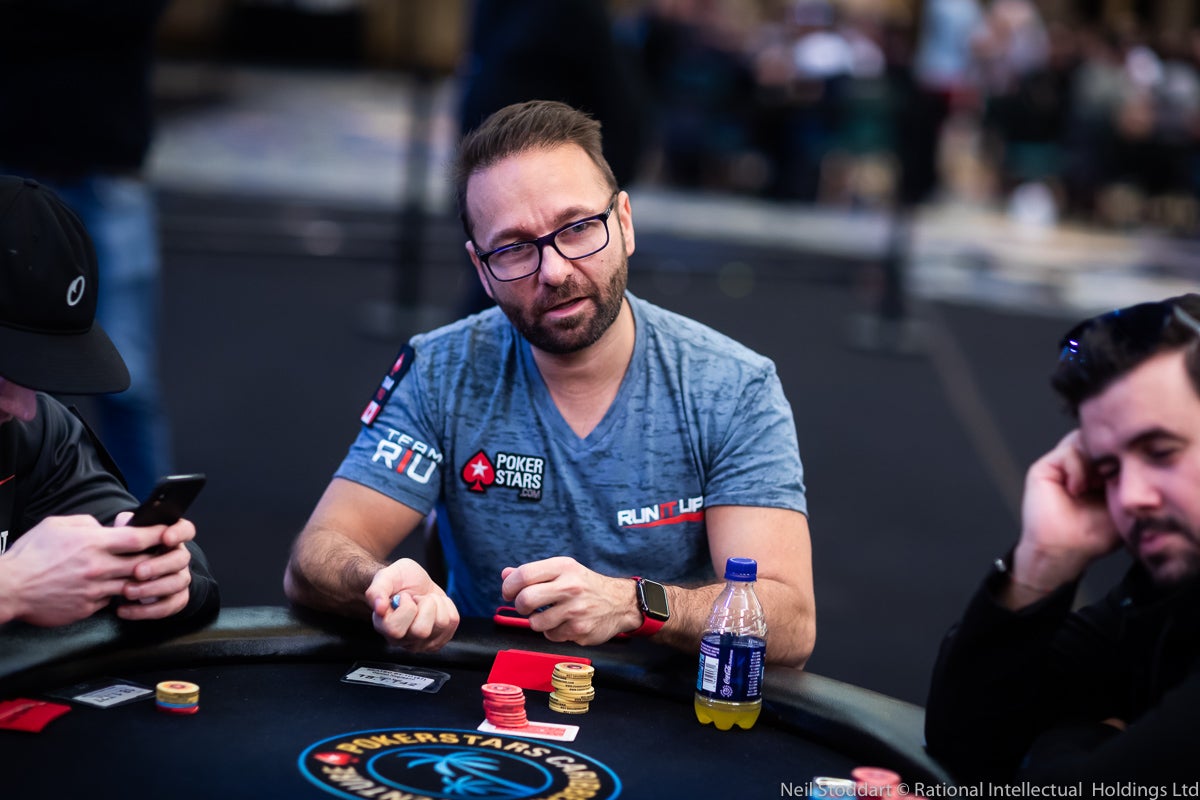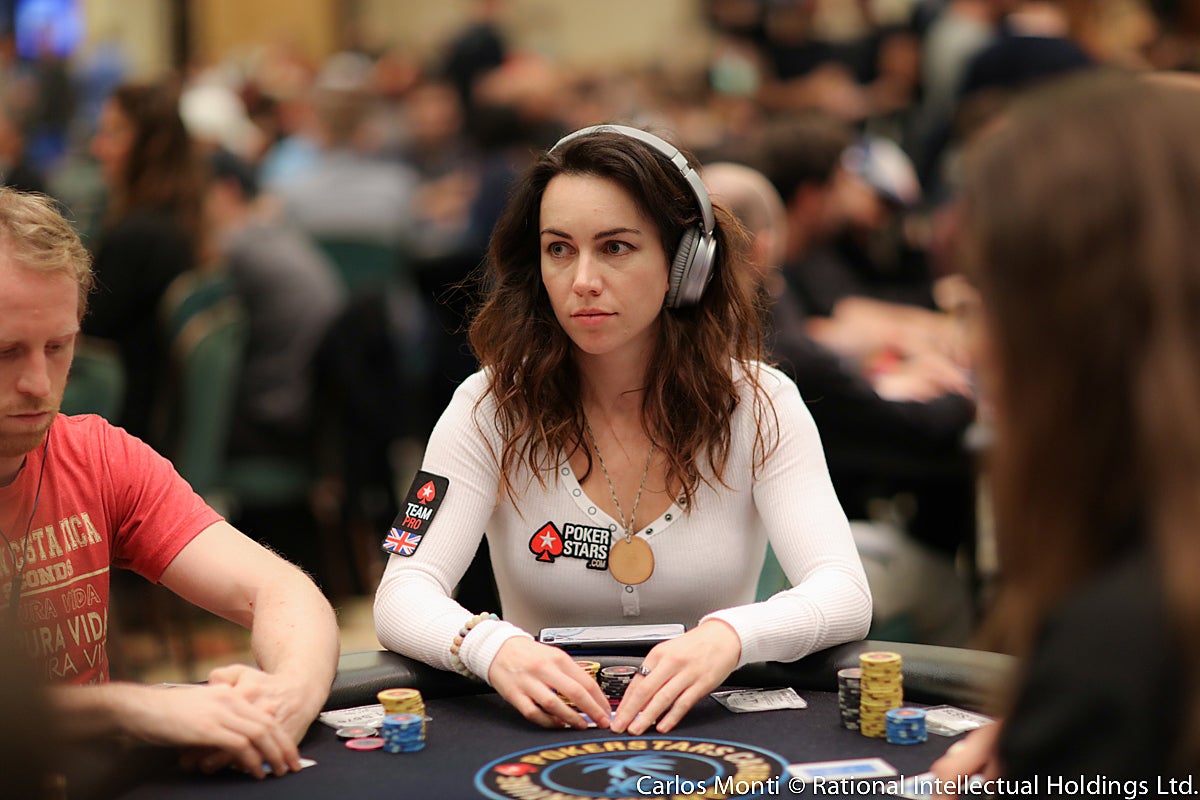Daniel Negreanu: ‘I think it’s easier than it’s ever been to become a professional poker player right now’
We asked three of the game’s leading lights how difficult it is to become a poker pro and what advice they would give to an aspiring player

Your support helps us to tell the story
From reproductive rights to climate change to Big Tech, The Independent is on the ground when the story is developing. Whether it's investigating the financials of Elon Musk's pro-Trump PAC or producing our latest documentary, 'The A Word', which shines a light on the American women fighting for reproductive rights, we know how important it is to parse out the facts from the messaging.
At such a critical moment in US history, we need reporters on the ground. Your donation allows us to keep sending journalists to speak to both sides of the story.
The Independent is trusted by Americans across the entire political spectrum. And unlike many other quality news outlets, we choose not to lock Americans out of our reporting and analysis with paywalls. We believe quality journalism should be available to everyone, paid for by those who can afford it.
Your support makes all the difference.It is easy to see why the life of a professional poker player might carry an allure for anyone looking in from the outside. The money, the casinos, the sunshine destinations like Monte Carlo and the Bahamas: it all paints a picture of the ultimate glamour-lifestyle, and all you have to do to get there is master a game of cards.
But the reality, especially in recent years, is that there is huge competition to make it to the top and less and less profit to go around. So is it still possible to start from scratch, give up the day job and become a professional poker player? Are stories like that of the author Maria Konnikova, who learnt the game for a book and won £96,000, a source of inspiration or simply an anomoly?
We asked three of the game’s leading lights how difficult it is to become a professional, and what advice they would give to an aspiring player:
Daniel Negreanu – highest-earning tournament player of all time
I think it’s easier than it’s ever been to become a professional poker player right now because a) there’s so many learning tools, software, books, you can watch pros playing on Twitch like Lex Veldhuis. Then b) you can go on Pokerstars and you can play for free until you get good. You can play small, one pennies and two pennies.
In the old days, you know how you got good? You lose your butt. You lose your ass a few times, and continue to do that and that’s the only way you get experience. When I grew up most of the players that are professional today would have had no chance in hell of making it back then. Even though the players weren’t as good, learning how to play well wasn’t something anyone taught people, I had to figure it out on my own.
Most of the young good players now are watching others and learning from there, so it’s much easier now. It seems like a paradox: the game is way tougher know but also way easier to be a professional.
If you didn’t live in Las Vegas, how are you gonna be a pro poker? There was no internet poker even in the late 90s. Now if you’ve got an internet connection, you can make a living sitting on your butt just by grinding all year, as long as your expenses are low.
Liv Boeree – EPT 2010 Sanremo main event winner and one of poker’s most successful female players
In all honestly I wouldn’t recommend someone become a pure professional. I couldn’t in good conscience say, ‘Yes, you should do that’. Because the game is so much harder than it used to be. But that doesn’t mean I wouldn’t say to someone ‘You shouldn’t learn’.
I think there’s not only one objective in poker, to be the world’s best pro. If that really appeals to you, and you have the aptitude and the hard work and the resources to be able to dedicate yourself then by all means have a go. But poker should be a thing of fun, it’s a learning experince, so I would absolutely push for people to learn, and by all means do some studying and strategy, but don’t give up your day job. Treat it as a hobby, same as if you like golf and you have another career: you’re not going to instantly drop everything and try to become a pro golfer. Same thing in poker, for the 99.9% of people. It’s still a beautiful and very worthwhile game to learn.

The best players are working so hard. If you want to play against them then you need study. I’ve got some studying to do now. In an ideal world it would be something like 60% playing, 40% studying, but playing is really the best way to practise.
Lex Veldhuis – 2009 WSOP main event final table, online star with major following on Twitch
The good thing is that there are lot of freeroles online, so people can play and learn that way. And also, people will Google it. There’s a Pokerstars school which has free content that says before you start, ‘think about this, watch out for that’, and there’s thousands of people on that forum talking to each other. So it’s the same as a lot of other things, if you prepare well and you’re willing to soak up some stuff, and do some research, you can slide into it.
If you pay for play money, there’s no real danger. That’s how I started learning, my friend said: ‘Here, start playing for play money, and then from there if you get better I’ll send you 10 dollars to play with’. The first month I just played for nothing, fictional money. Through social media we are really trying our best to guide people through it. I think there’s less of a predatory environment where people think ‘Oh let’s win some money of this guy’. People just want more people to play poker.
There’s a lot of information out there, so people get good really quickly. It shouldn’t come to a point for instance in chess when you and I might play three games in a row and I might think chess is fun but after three games I might think I dont want to play anymore because I know I’m going to lose. I think that the more we keep an eye on that, the more everybody keeps poker very engaging and a very fun experience, and keep seeing it as a hobby and fun pastime, the better. I’m a big advocate of talking at the table, talking to people, having a laugh. the social angle is very important for me. People can be as good as they want but it’s not fun if people step into a world that seems very esoteric and where it’s cold and you feel like an outsider. That’s not the way it should be, so as long as everybody keeps that in mind we should be doing alright.
The game is hard to beat at the moment but all the tools are there. I get this question a lot, people are like ‘Hey, how do I learn’, and I reply ‘If you have to ask me which videos to watch without researching it you have no shot’. It goes for a lot of things in the world, you need to put a lot into it, but the beauty about it is you can do a lot of it yourself, all the information is there, you can do everything, self-study, you can join forums, YouTube channels from big brands. There’s so much stuff out there to self-educate with, and if you keep the money you put in very low and focus on learning, the money will come after, and you can get really good with all the info out there.
There’s some people playing $400-$500 buy-ins per tournament every day that started with nothing two years ago and those are the guys that sat down and approached it as study.
Join our commenting forum
Join thought-provoking conversations, follow other Independent readers and see their replies
Comments